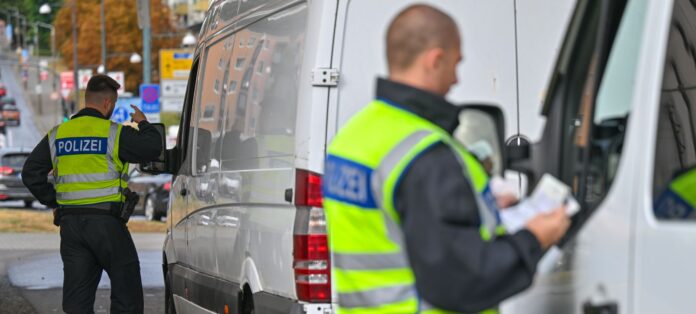“Anyone who expects that border controls will lead to a decrease in irregular migration is raising an expectation that is unattainable,” researcher Gerald Knaus said in an interview with the Deutschlandfunk radio station.
Germany is a member of the Schengen area, which allows about 420-million people in 29 European countries to travel freely without facing border controls.
But checks are already in place at some of Germany’s nine borders, including with Poland, and will on Monday be extended to Luxembourg, Belgium, the Netherlands and Denmark starting on Monday.
Knaus said that many EU countries, including France and Austria, have had border controls for years, but this “has not reduced the number of asylum applications at all”.
Free movement
Knaus also stated that border controls are not a means to prevent Islamist terrorism, as many of the perpetrators only became radicalised in Germany.
Halting irregular migration would only be possible with radical measures such as a complete end to the free movement of travel and goods between the members of the Schengen area, Knaus said.
“If the idea is really to stop any irregular migration at the German borders, that can only be done permanently with an end to Schengen. For that, you would also need fences at the green border.”
Knaus also has little hope for an acceleration in the deportation of migrants who have already arrived and been registered in another EU country, as the German government plans.
Under EU migration rules, asylum requests must be filed in the country where the migrant first enters the bloc.
“If a country like Italy says we will not take anyone, and the European Commission does not initiate infringement proceedings, then other countries will see that too,” he said.
“I fear the whole approach to preventing irregular migration within the EU and stopping secondary movement will fail. It has always failed so far.”
Cross-border crime
What is needed is an EU-wide approach, Knaus said. “We need to reduce irregular migration into the EU, and we need a discussion about that.”
Meanwhile, the Interior Ministry announced on Sunday that controls along all of Germany’s frontiers will be targeted to “combat cross-border crime and further limit irregular migration”.
The expanded measures took effect on Monday.
Neighbouring states have expressed concern that the border checks will lead to tailbacks, hampering regular cross-border traffic.
Following a string of recent attacks, a divisive German debate on immigration erupted last week, leading to the announcement of the measures.
The police will carry out the spot checks “flexibly and according to current security requirements”, the ministry said.
The extent, duration and specific locations for the controls would depend on these factors.
Germany’s Interior Minister, Nancy Faeser, stated that the country would “continue to act in close coordination” with its neighbouring nations and would make sure that the controls “affect people in the border regions, commuters, trade, and business as little as possible”.
Disruptions not ruled out
She told the Bild am Sonntag newspaper that there would be no long traffic jams.
Nevertheless, her ministry indicated that disruptions could not be ruled out, while noting that travellers and commuters should carry an identity document when crossing the border.
The assurances came as the Danish police warned of congestion due to Germany’s planned border controls.
The E45 motorway crossing at Frslev is currently undergoing road construction that will narrow the road to one lane and make the situation worse.
Denmark also introduced controls at the border to Germany, most recently extending them until November.
From Monday, Germany will additionally carry out border controls on its frontiers to France, Belgium, Luxembourg, the Netherlands and Denmark for an initial six months, extending measures already in place on its borders with Switzerland, Austria, Poland and the Czech Republic.
Several European countries, including Poland, Denmark and Greece, have criticised the expanded controls, which are only intended in exceptional cases within Europe’s passport-free Schengen area. – dpa



